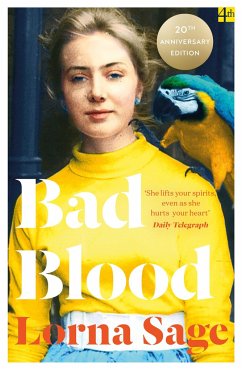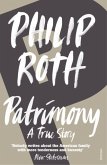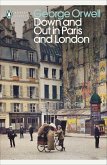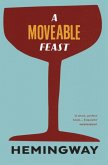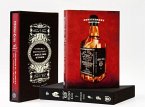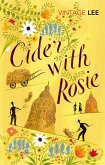From a childhood of gothic proportions in a vicarage on the Welsh borders, through adolescence, leaving herself teetering on the brink of the 1960's, Lorna Sage vividly and wittily brings to life a vanished time and place and illuminates the lives of three generations of women.
Hinweis: Dieser Artikel kann nur an eine deutsche Lieferadresse ausgeliefert werden.
Hinweis: Dieser Artikel kann nur an eine deutsche Lieferadresse ausgeliefert werden.
'In a class of its own ... It is a measure of her achievement that she can turn the peculiarities of her own past - and they are peculiar - into a narrative that speaks for the whole of post-war Britian ... This is not just an exquisite personal memoir, it is a vital piece of our collective past.' Daily Telegraph
'A wonderful book. Women need this kind of book but perhaps men need it more, to give the sort of understanding which we still lack of how girls actually grow up.' Margaret Forster
'This could have been the saddest book you have ever read, but because of Lorna Sage's relish in the details, her exuberant celebration of the vitality of this clever, surviving girl, it is as enjoyable a book as I remember reading.'
Doris Lessing
'[a] rich, justly acclaimed autobiography ... this almost perfect memoir is a tribute to imperfection' Independent
'An almost unbearably eloquent memoir ... Bad Blood is also a tale of shared consciousness, and although the lives Sage describes clash with and limit her own, there is much that is redemptive here, and even elegiac' Frances Wilson, Guardian
'A wonderful book. Women need this kind of book but perhaps men need it more, to give the sort of understanding which we still lack of how girls actually grow up.' Margaret Forster
'This could have been the saddest book you have ever read, but because of Lorna Sage's relish in the details, her exuberant celebration of the vitality of this clever, surviving girl, it is as enjoyable a book as I remember reading.'
Doris Lessing
'[a] rich, justly acclaimed autobiography ... this almost perfect memoir is a tribute to imperfection' Independent
'An almost unbearably eloquent memoir ... Bad Blood is also a tale of shared consciousness, and although the lives Sage describes clash with and limit her own, there is much that is redemptive here, and even elegiac' Frances Wilson, Guardian

